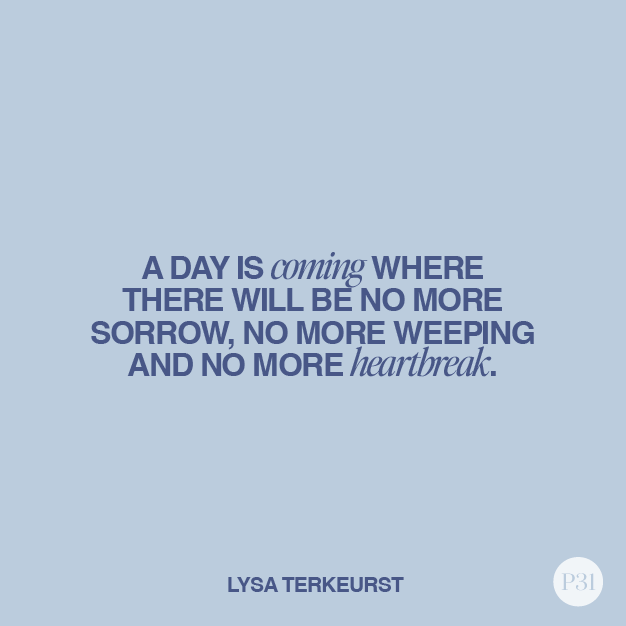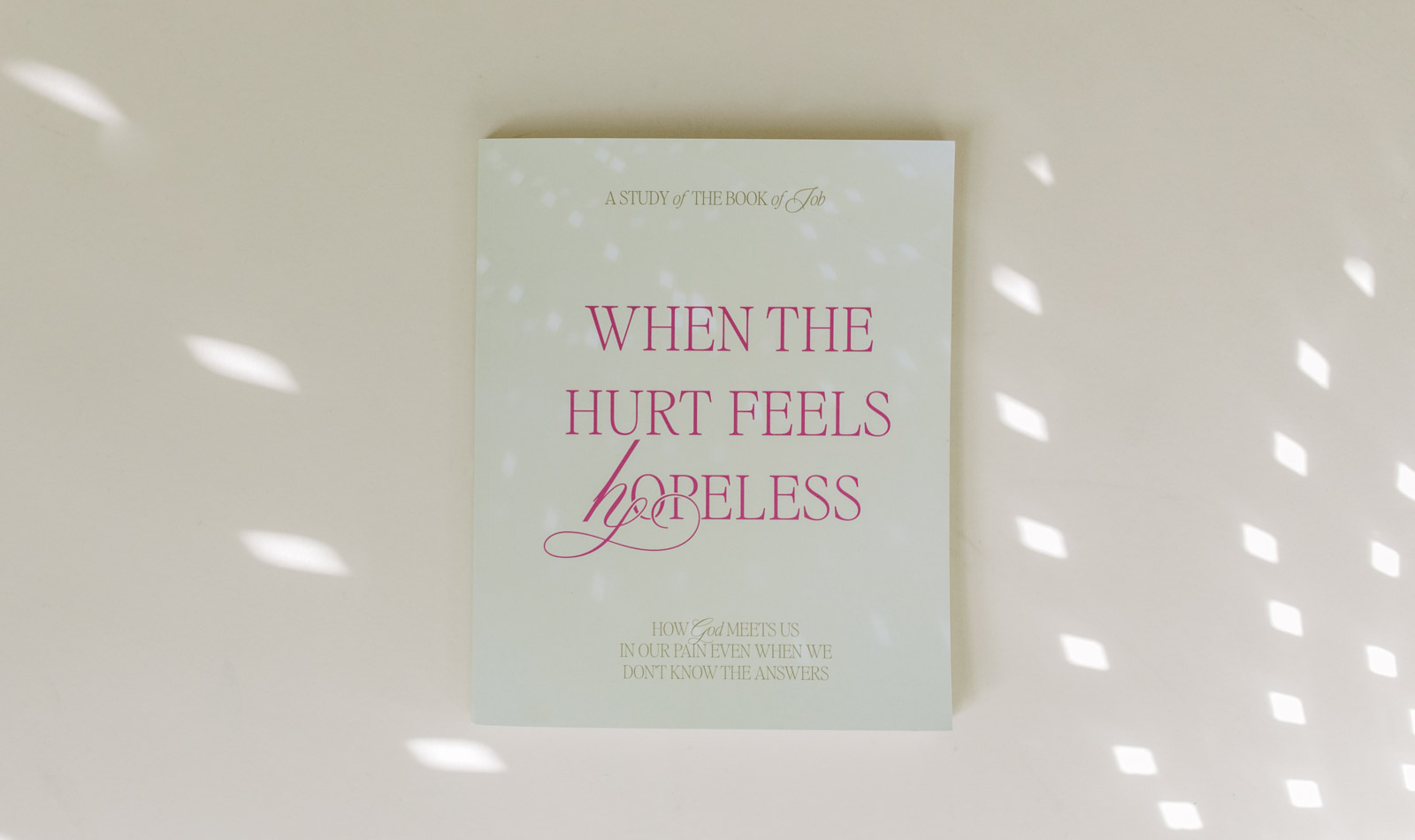
"'He will wipe every tear from their eyes. There will be no more death' or mourning or crying or pain, for the old order of things has passed away." Revelation 21:4 (NIV)

Do you ever feel like pain and sorrow are chasing you down? Like you just can’t outrun all of the hurt? I’ve been there.
That’s why I want us to look at someone in Scripture who understands this kind of pain — King David.
Not only did David spend a significant amount of time running for his life from King Saul (before David himself became king), but he also eventually ended up running from his very own son Absalom.
But whereas Saul openly sought David’s life, we find Absalom sneaked around behind his father’s back in an effort to rip the kingdom from David’s hands. With slick promises and conspiratorial kisses, Absalom easily “stole the hearts of the people of Israel” (2 Samuel 15:6, NIV). And it wasn’t long before David received word that his kingdom was crumbling right in front of him (2 Samuel 15:13).
In light of these events, David saw that his situation was desperately dangerous. He needed to escape. The route we find him taking to escape the city, weeping as he went, trailed across the Kidron Valley, through the garden of Gethsemane, over the Mount of Olives, and into the Judean desert. This was the known escape route for those needing to flee from danger quickly in Jerusalem (2 Samuel 15:16-37).
Within this story, we are reminded of a larger story. The people of God are continually wayward in our love and affections toward our King. We allow our hearts to be captivated by others. We are prone to stray. This wasn’t just the case when David was king. People also did this to another King who would come from David’s bloodline generations later — King Jesus.
Years later, Jesus would sit in the garden of Gethsemane, the very gateway of David’s escape route, facing extreme danger. We read about Jesus in these difficult moments in Mark 14:34-36, where He lamented: “‘My soul is overwhelmed with sorrow to the point of death … Stay here and keep watch.’ Going a little farther, he fell to the ground and prayed that if possible the hour might pass from him. ‘Abba, Father,’ he said, ‘everything is possible for you. Take this cup from me. Yet not what I will, but what you will’” (NIV).
His people were turning against Him. Jesus wasn’t meeting their expectations as King. They wanted Him dead.
As I once sat in the garden of Gethsemane during a visit to the Holy Land, my heart was overcome with the reality of what Jesus was facing while in that very place. He knew He could have escaped (Matthew 26:52-54). He knew He could have fled like David had done. He knew the way to take to save Himself.
But Jesus stayed so He could save us.
Though my heart strays from Him, Jesus’ heart is compelled to stay for me.
Jesus ended His prayer to God with nine earth-shaking, demon-quaking, hell-shattering words: “Yet not what I will, but what you will” (Mark 14:36c, NIV). In other words, He completely submitted to God’s plan because He knew, in the end, it was best.
Jesus is the only King who perfectly fulfilled God’s will.
As we read the story of King David, we must always remember he simply points to the better David — Jesus, who is the King of kings. The contrast between David’s experience and Jesus’ is important:
What does this mean for us today?
I would imagine we can all relate to David’s weeping. Our lives are riddled with evidence that we live in a broken world — loss, hurt, death, betrayal, heartbreak and relationship breakdowns. But may we remember Jesus’ weeping as well. He hurts when we hurt. And that’s the exact reason He made a way for us to enter His eternal Kingdom one day, where there will be no more sorrow and no more weeping. Hold on to these words. This coming day is closer than we realize: "'He will wipe every tear from their eyes. There will be no more death' or mourning or crying or pain, for the old order of things has passed away" (Revelation 21:4).
Lord, I can’t thank You enough for the fact that You stayed and suffered the pain of the cross for me. May the truth of Your sacrifice stir this sometimes wandering heart of mine to stay faithful, stay hopeful, stay devoted to You. In Jesus’ Name, Amen.
We know God has the power to take away all of our problems and pain on earth. But what do we do when He doesn’t? Join our next study on the book of Job, When the Hurt Feels Hopeless: How God Meets Us in Our Pain Even When We Don’t Know the Answers. Throughout this story, we’ll discover that God meets us with His love and perfect plan in the middle of every question we’re asking. And while He doesn’t always take our pain away, He promises to give us His comfort, peace and presence in it. Click here to order your study guide, and join us on June 12 in the free First 5 mobile app.

Find real-life encouragement when you connect with Lysa TerKeurst here on Instagram.
Matthew 28:20b, “And surely I am with you always, to the very end of the age” (NIV).
How do these words of Jesus encourage you as you wait for the day Revelation 21:4 talks about? We'd love to hear from you in the comments!
© 2023 by Lysa TerKeurst. All rights reserved.
Join the Conversation